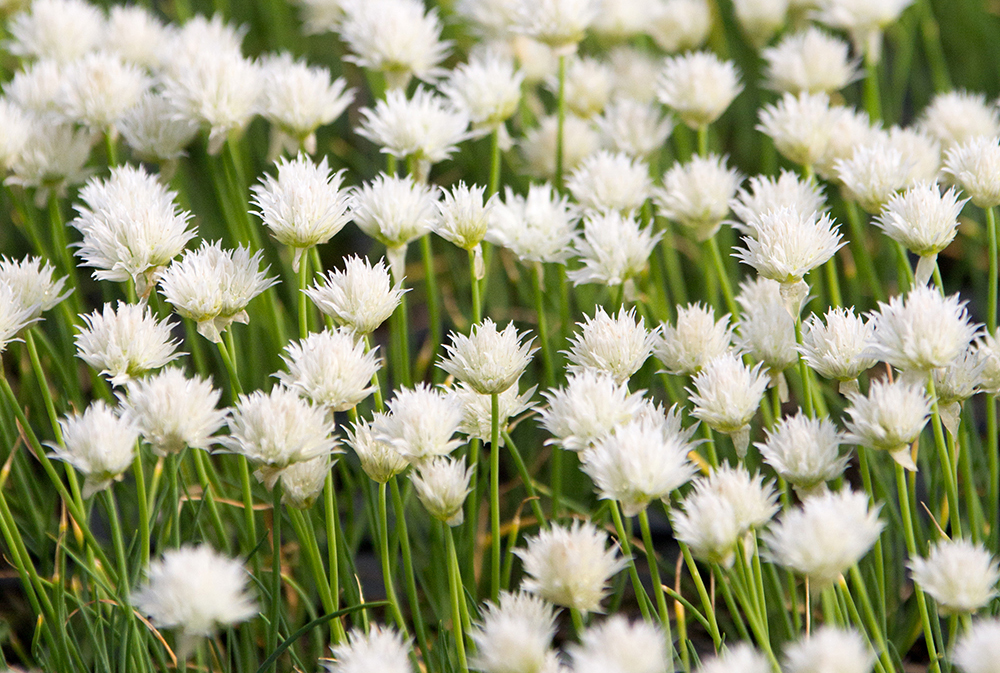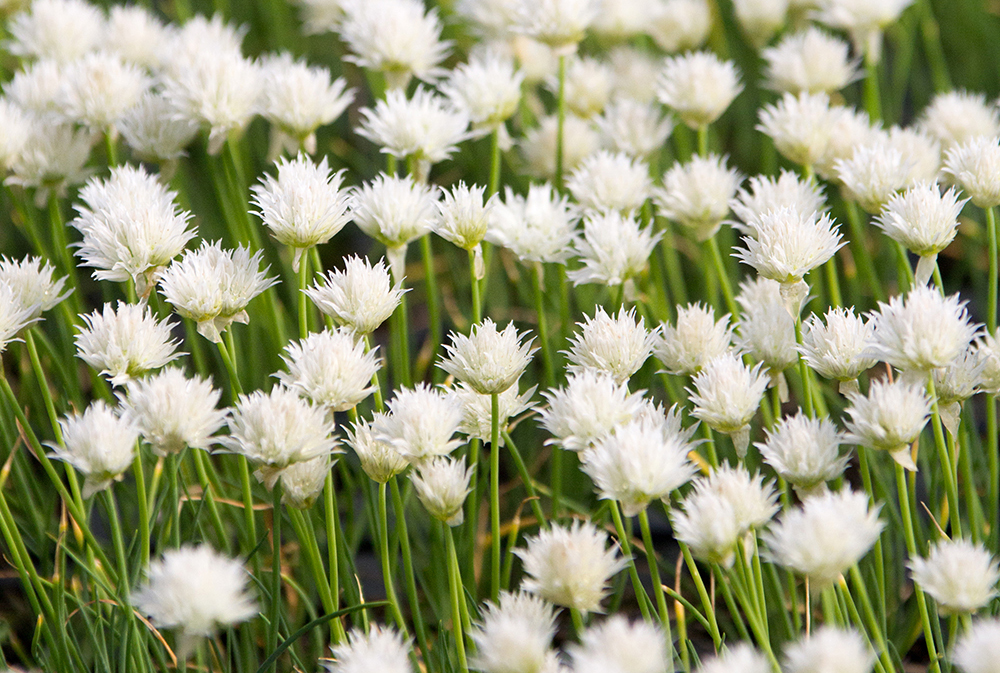Allium schoenoprasum 'Snowcap'
ChivesAllium schoenoprasum 'Snowcap'
ChivesThis semi-dwarf selection features pristine white, spherical blooms which appear above a mound of finely textured, gray-green foliage. Holds up well in heat and humidity. Both the flowers and leaves are edible. Market this plant in your herb line and as a very cold hardy perennial. Deadhead to prevent reseeding. Breeder: Mark McDonough
Plant Details
- Zone: 2 - 9
- Height: 12-15"
- Spread: 12-16"
- Exposure: Full Sun, Part Shade
- Soil Moisture: Low Water Needs, Moderate Water Needs
- Drought tolerant: Yes, Once Established
- Bloom time: Late Spring
- Foliage Color: Green Shades
- Flower Color: White Shades
- Fragrant: Yes
- Good Cut Flower: Yes
- Native: Not native to North America
- Deer resistant: Yes
- Rabbit resistant: Yes
- Bee-friendly: Yes
- Attracts butterflies: Yes
- Attracts hummingbirds: No
- Groundcover: No
- Roy Diblik Favorite: No
Plant Details
- Zone: 2 - 9
- Height: 12-15"
- Spread: 12-16"
- Exposure: Full Sun, Part Shade
- Soil Moisture: Low Water Needs, Moderate Water Needs
- Drought tolerant: Yes, Once Established
- Bloom time: Late Spring
- Foliage Color: Green Shades
- Flower Color: White Shades
- Fragrant: Yes
- Good Cut Flower: Yes
- Native: Not native to North America
- Bee-friendly: Yes
- Deer resistant: Yes
- Rabbit resistant: Yes
- Attracts butterflies: Yes
- Attracts hummingbirds: No
- Groundcover: No
- Roy Diblik Favorite: No
Grower Information
Allium is easy to produce without worry of diseases and pests. They require medium-low moisture and average fertility in production, and overwinter easily in cold frames or outdoors. To achieve flowering plants for early spring sales, pot up early blooming chive-types the fall prior. Others can be potted in early spring for bud and bloom sales in summer.
- PowerPlug Size(s): 32s, 72s
- Optimal Planting Time: Late Summer-Fall
- Retail Sales Window: Spring, Summer
- Moisture in Production: Average, Low
- Requires Shade in Production: No
- Vernalization Required for Bloom: No
- Vernalization Beneficial: Yes


